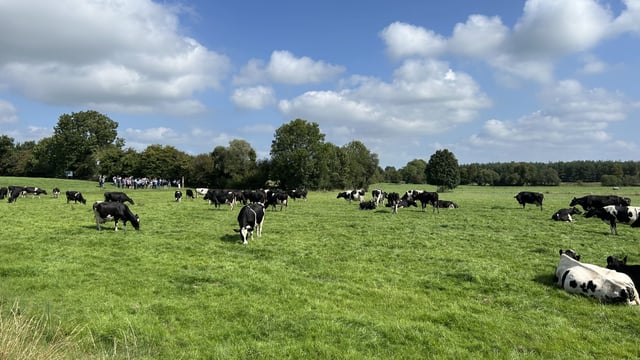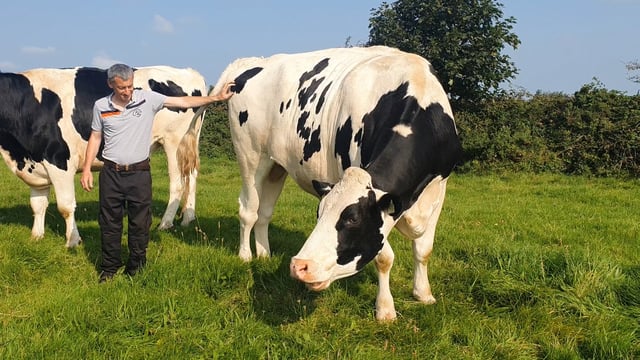Sponsored Article

Sponsored Article
Building a market for Irish food and drink exports in China
Sponsored Article

In this article, we meet with Suki Wu, who is the China Market Specialist in Bord Bia’s Shanghai office to discover more about Irish food and drink exports to China.
I’m the China Market Specialist in Bord Bia’s Shanghai office. My main focus is on promoting and growing Irish dairy exports in the Chinese market.
Along with London, the Shanghai office is Bord Bia’s largest outside Dublin.
Being based here on the ground is really important. China has a massive influence on global food and drink markets because of the sheer volume it imports.
Having a strong team in-market means we can better understand trade dynamics in real-time, identify opportunities, and support Irish clients in navigating the nuances of Chinese business culture.
Ireland exports a wide range of food and drink to China, including Mainland China, Hong Kong, Macau, and Taiwan.
Our key exports include dairy, meat (especially pigmeat), seafood, drinks, and prepared consumer products.
Ireland is China’s fifth largest supplier of infant formula. For pigmeat, China is Ireland second biggest pigmeat export market.
From January to May this year, Irish food and drink exports to China reached €232 million - a 2% increase compared to the same period last year.
Growth came mainly from pigmeat, seafood, and dairy ingredients like casein and whey.
Pigmeat imports rose early in the year thanks to Chinese New Year celebrations, early stockpiling by processors, and new tariffs on US and Canadian products that opened more space for European suppliers.
In dairy, demand for protein ingredients is strong across many consumer groups, including the elderly, who are looking for functional nutrition.
Irish beef exports are currently suspended, but hopefully this will be resolved and lead to sustained growth in beef exports.
Geopolitical tensions and shifts in trade relationships can lead to tariff changes or new import policies, making long-term planning more difficult and adding costs.
China is also investing heavily in its domestic food production, aiming for more self-sufficiency, which can reduce demand for imports.
On top of that, changing consumer preferences within China are influencing how and what products people buy.
One of the biggest challenges in promoting Irish products in China is our geographical distance.
This means there is an ongoing need to explain not just what Ireland offers, but where and who we are.
The dairy sector has led the way here, investing heavily in campaigns that not only promote their own products, but also raise awareness of Ireland itself.
Altogether, these factors create a more complex environment for growing Irish exports.
Yes, there are still strong opportunities. In the second half of 2025, we’re expecting continued growth in demand for health supplements and functional food and drinks, especially products like whey protein concentrate.
There’s also rising demand from restaurant chains for frozen pork, particularly for use in pre-made meals and further processing.
During major holidays like Mid-Autumn Festival, National Day, and Spring Festival, processors will increase their pork purchases to produce items like sausages, preserved pork, and canned foods.
That said, total pork imports in the second half of the year may slow slightly compared to earlier in the year.
There have been many moments I’m proud of, especially the wide-ranging work we’ve done to promote Irish dairy here. But one standout would be how we responded to the challenges in the infant formula sector since 2018.
At that time, the import market was shrinking due to declining birth rates and a consumer shift toward local Chinese brands.
Rather than stepping back, we used the moment to reassess and identify new opportunities.
That led us to specialised nutrition - dairy products formulated for specific nutritional needs such as elder or sports nutrition. This is an area where Irish dairy can really add value.
I’m proud to have been involved, working closely with industry to refocus our strategy, align with emerging trends, and create a new space for Ireland in the market.
Sponsored Article







